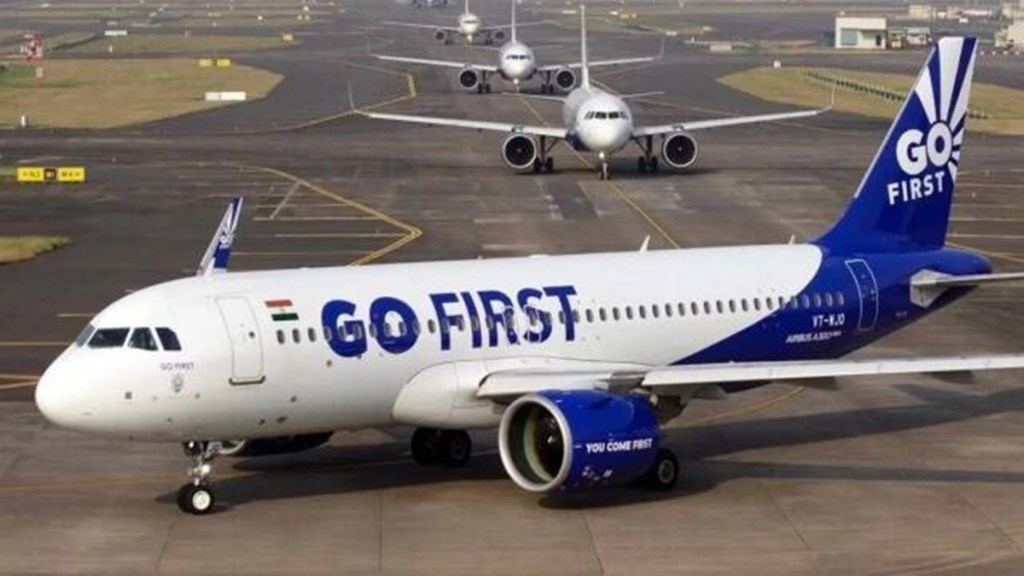To calm nervous aircraft lessors as a fallout of Go First crisis, India is now ‘actively’ considering to ratify the ‘Cape Town Convention’ (CTC), top government and industry sources told Fe.
The CTC is a global treaty on the rights of aircraft lessors to repossess their aircraft.
At present, India is a signatory to the convention but the Parliament has not ratified the same.
Also read: Explainer| Go First in NCLT: What can be expected
Consequently, the unique situation has given precedence of local courts’ judgments over the norms of the convention.
As shown recently, the admission of Go First’s insolvency resolution plea by the National Company Law Tribunal (NCLT) as well as the protection granted to the assets of the airline under a moratorium has put a break on the lessors’ rights to repossess their aircraft leased to the air carrier.
Earlier, the aircraft lessors had approached civil aviation regulator to deregister 45 aircraft leased to Go First airlines under the Irrevocable Deregistration and Export Request Authorization (IDERA) norms.
These norms require the regulators to deregister aircraft in cases of lease rental defaults and allow lessors to repossess them within five working days of receiving a request.
Go First have some 54 aircraft in its fleet. The airline has extended its flight cancellation period till May 23.
Presently, three aircraft lessors have moved the National Company Law Appellate Tribunal (NCLAT) against the order passed by the NCLT to initiate insolvency proceedings.
On Friday, the appellate heard lessors’ petition, the two-member bench would continue its hearing on the matter on Monday.
On their part, the lessors said that aircraft leases were terminated before the initiation of the insolvency process.
Meanwhile, the blowback of Go First’s crisis is also being felt on other airlines especially SpiceJet. The airline has reassured stakeholders that it is not going in for voluntary bankruptcy proceedings.
However, some lessors have approached the DGCA to deregister their aircraft leased to SpiceJet.
The NCLT had issued a notice to SpiceJet on a petition filed by aircraft lessor Aircastle for commencement of insolvency proceedings against the airline.
The tribunal has set May 17, as the next date of hearing the matter.
Also read: Go First insolvency: Two more lessors move NCLAT
However, Ajay Singh, Chairman and Managing Director, SpiceJet, last week, said: “There is absolutely no question of filing for insolvency.”
According to Singh, the airline’s lessors have supported the company through “thick and thin and continue to do so”.
In addition, the situation has led an international body representing aircraft lessors to give a negative outlook on India.
The UK-based Aviation Working Group (AWG) in a report said that the country remains on the ‘CTC (Cape Town Convention) Compliance Watchlist’.
The AWG maintains an index of whether a country meets parameters set for CTC compliance.
“The GoFirst insolvency proceedings are a material development that implicates CTC (Cape Town Convention) compliance in India.”
“The DGCA’s failure to process IDERA deregistration applications for aircraft whose leases were terminated prior to the imposition of the moratorium within the timetable set forth in its SOP results in a negative outlook for India’s scoring on variable B under the compliance index formula, which addresses whether CTC requirements are met in practice.”
Additionally, industry insiders told Fe that the ongoing legal tussle has a potential to hike aircraft lease rentals in India, as the country is now being looked as a ‘risky jurisdiction’.
On average an Airbus A320 type of an aircraft has a lease rent range of about $250,000-$300,000 per month.

